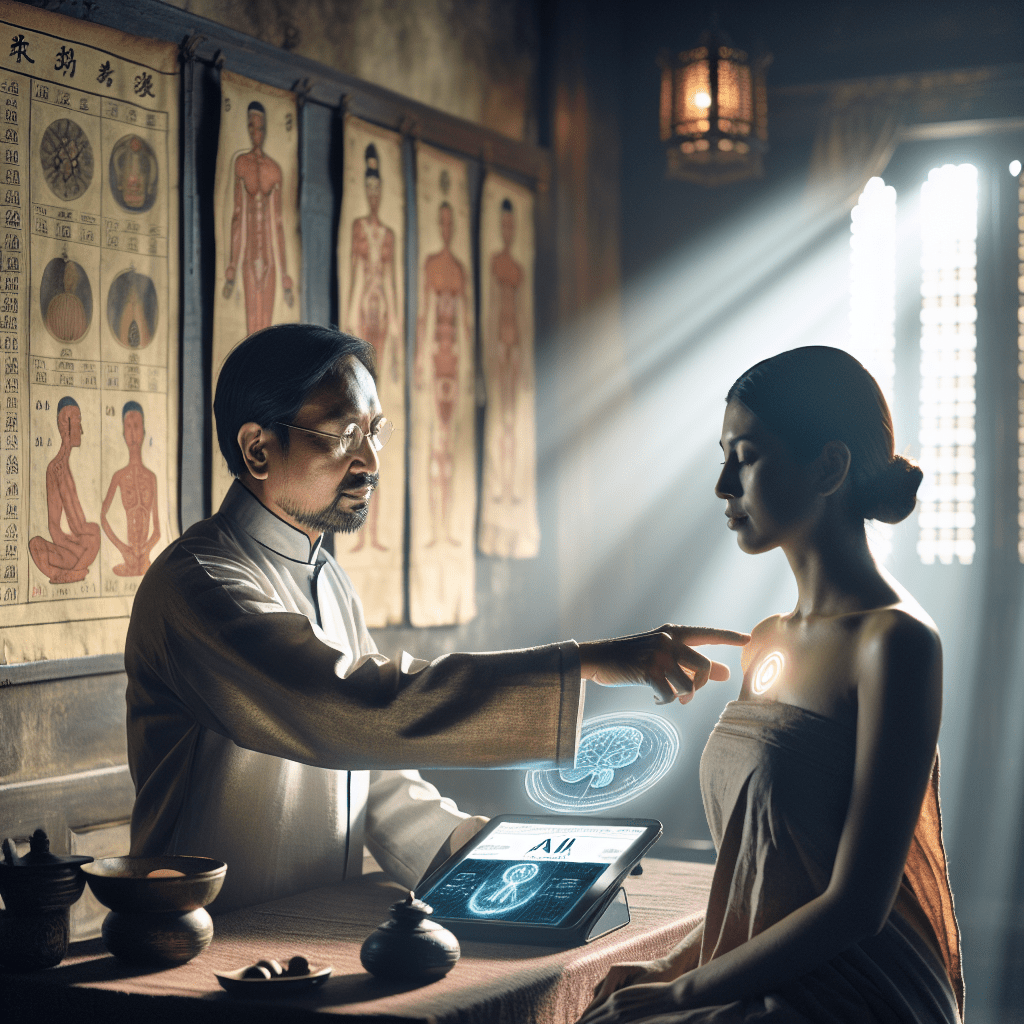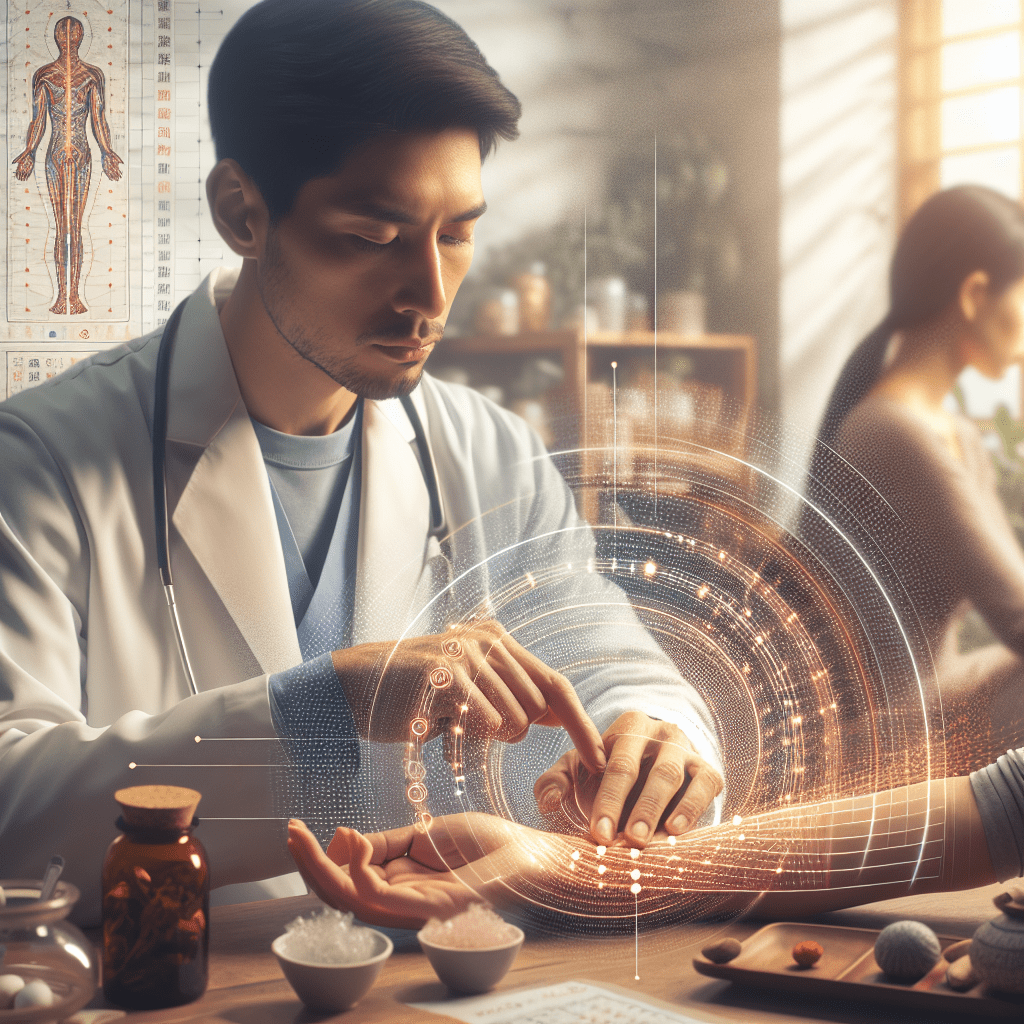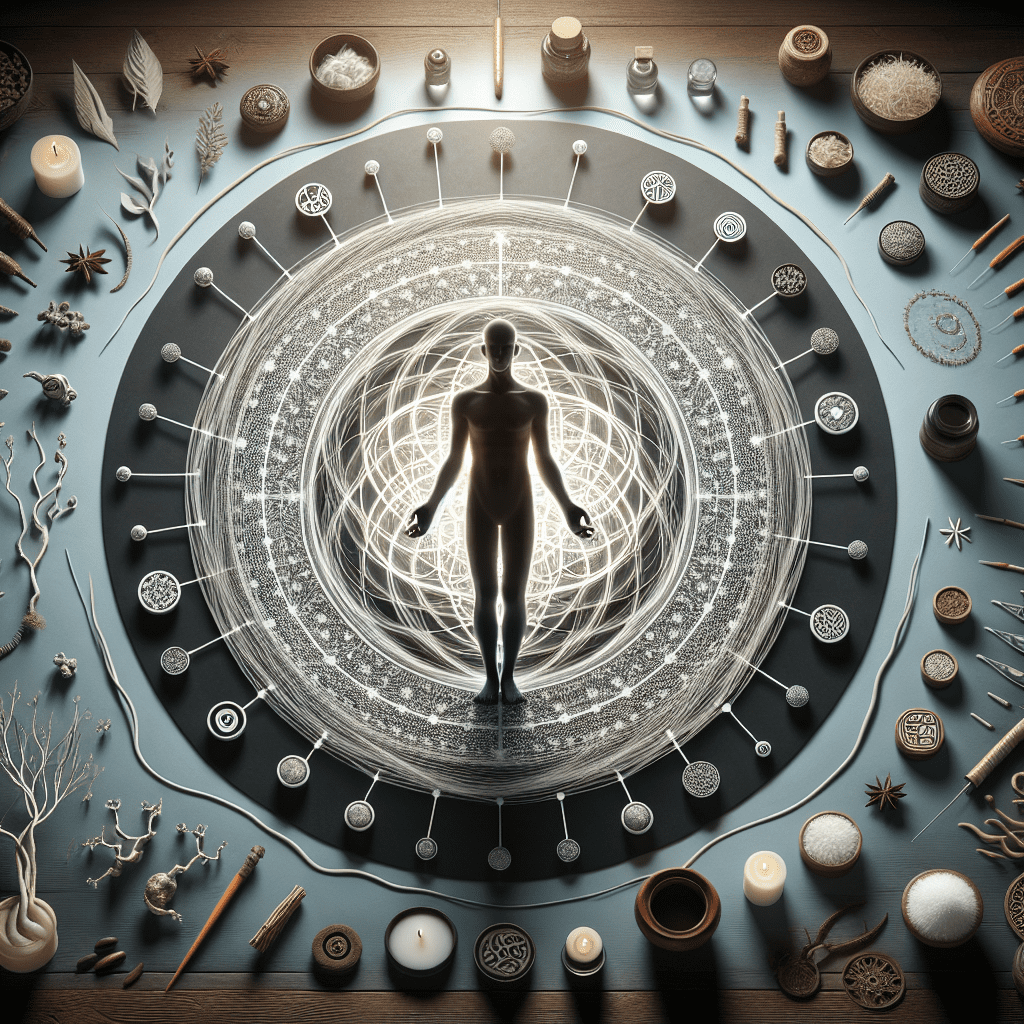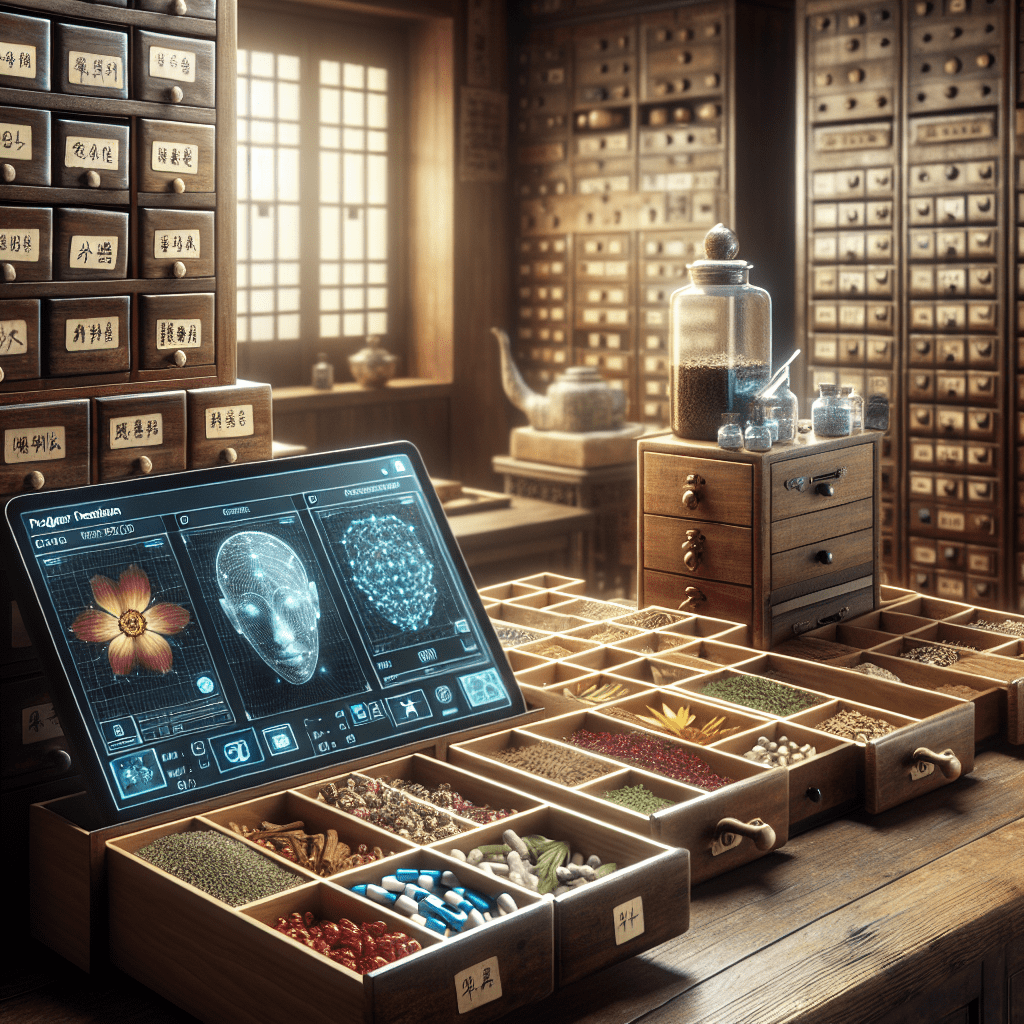In a world where healthcare approaches are increasingly polarized between cutting-edge technology and traditional healing methods, a fascinating convergence is taking place. Eastern Medicine AI represents the beautiful marriage of ancient wisdom and modern innovation, creating a healthcare revolution that’s quietly transforming lives across the globe. This intriguing fusion brings together the time-tested practices of Traditional Chinese Medicine (TCM) – with its 2,000-year-old understanding of the body’s energy systems and natural healing – and the problem-solving power of artificial intelligence.
For health enthusiasts seeking alternatives to conventional medicine, this blend offers something truly special: personalized health solutions that honor the body’s natural healing wisdom while leveraging the precision of advanced technology. As more people experience the benefits of this approach, Eastern Medicine AI is emerging as not just a trend but a transformative force in modern healthcare.
Revolutionizing Traditional Chinese Medicine Through Artificial Intelligence
The integration of AI into Traditional Chinese Medicine is redefining how we understand and apply these ancient healing arts. Far from diluting traditional practices, Eastern Medicine AI enhances them, bringing greater precision and accessibility to time-honored wisdom.
One of the most promising applications is in diagnostic accuracy. Traditional Chinese Medicine relies heavily on visual observations, pulse readings, and tongue analysis – skills that traditionally take decades to master. Now, AI systems can analyze thousands of tongue images or pulse patterns in seconds, identifying subtle variations that might elude even experienced practitioners. These systems learn from the collective wisdom of master practitioners, creating a diagnostic tool that combines centuries of knowledge with modern computational power.
“What we’re seeing with Eastern Medicine AI is remarkable – it’s not replacing the human element but amplifying the practitioner’s capabilities,” explains Dr. Wei Chen, a TCM practitioner who has integrated AI tools into his practice. “I can now offer more confident diagnoses, especially in complex cases where multiple patterns overlap.”
Beyond diagnosis, AI is revolutionizing herbal medicine screening and formulation. Traditional Chinese herbal remedies often contain dozens of ingredients working in harmony, making optimal combinations challenging to determine. AI systems can now analyze millions of potential combinations, identifying those most likely to address specific health concerns while minimizing side effects. This approach has led to the discovery of new applications for traditional herbs and more effective formulations for modern health challenges.
Drug discovery represents another frontier where Eastern Medicine AI shines. By analyzing the chemical compounds in thousands of traditional herbs against modern understandings of disease mechanisms, researchers are identifying promising candidates for new medications. This process, which might take decades through conventional methods, can be accelerated dramatically through AI assistance.
These advancements align perfectly with the philosophy embraced by platforms like EASTCHI AI, which seeks to blend ancient Eastern medical knowledge with cutting-edge technology to deliver personalized health solutions. By enhancing the precision of traditional practices rather than replacing them, Eastern Medicine AI preserves the holistic essence of TCM while making it more accessible and effective for contemporary health needs.
Real User Experiences: How AI-Enhanced TCM Is Changing Lives
The true measure of any healthcare innovation lies in its impact on real people’s lives. Across the globe, patients and practitioners are reporting remarkable transformations through their experiences with Eastern Medicine AI systems.
Sarah Johnson, a 42-year-old marketing executive from Seattle, had struggled with chronic digestive issues for years. “I’d tried everything from elimination diets to prescription medications, but nothing provided lasting relief,” she recalls. After consulting with a practitioner using an Eastern Medicine AI platform, she received a personalized treatment plan based on her constitutional type according to Five Element Theory. “The AI identified patterns my previous doctors had missed, connecting my digestive issues to stress and suggesting specific herbal combinations and dietary changes. Within weeks, I experienced improvements I hadn’t thought possible.“
For practitioners, the integration of AI has transformed their ability to deliver care. Dr. Lisa Wong, who runs a busy TCM clinic in Vancouver, implemented an Eastern Medicine AI system last year. “The time savings alone have been revolutionary,” she explains. “What used to take me 45 minutes of analysis now takes 5 minutes with AI assistance, allowing me to spend more quality time connecting with patients and explaining their treatment plans.”
The speed and accuracy of AI-enhanced diagnosis has proven particularly valuable for complex cases. Michael Torres, a TCM practitioner in London, recalls a patient with an unusual combination of symptoms that didn’t fit standard patterns. “The Eastern Medicine AI system analyzed his pulse readings, tongue appearance, and symptom history, suggesting a rare combination of patterns I might not have considered. The recommended treatment approach worked remarkably well, and it expanded my own understanding of how these patterns can interact.”
Personalization is another area where Eastern Medicine AI excels. Traditional Chinese Medicine has always emphasized the uniqueness of each individual’s constitution and health needs, but AI enhances this personalization to new levels. “The system continues learning from each patient interaction,” explains Dr. Mei Zhang, who uses an AI platform in her New York practice. “It remembers what worked for similar patients and suggests refinements to treatment plans based on ongoing feedback. This creates a level of personalization that would be difficult to achieve manually.”
These experiences reflect the core promise of platforms like EASTCHI AI, which focuses on delivering customized nutrition plans, lifestyle recommendations, and health support grounded in Eastern medical theories. By analyzing individual constitutional types and providing seasonal dietary guidance based on the Eastern concept of food as medicine, these systems help users experience the benefits of ancient wisdom tailored precisely to their unique needs.
Technological Advancements Driving the Eastern Medicine AI Revolution
Recent technological breakthroughs have dramatically accelerated the capabilities of Eastern Medicine AI systems, making them more powerful and accessible than ever before.
Advanced image recognition technology now allows AI systems to analyze tongue images with astonishing precision. Traditional tongue diagnosis – a cornerstone of TCM practice – involves assessing the tongue’s color, coating, shape, and moisture to gain insights into internal health conditions. Today’s AI systems can detect subtle variations invisible to the naked eye, identifying patterns associated with specific health imbalances.
“Our research shows that AI analysis of tongue images can achieve diagnostic accuracy of over 95% for certain conditions, exceeding the performance of mid-level practitioners,” notes Dr. Zhang Wei of Beijing University of Chinese Medicine. “This technology is particularly valuable in regions with limited access to experienced TCM doctors.”
Voice analysis represents another frontier in Eastern Medicine AI. Traditional practitioners often assess a patient’s voice quality as part of diagnosis, but this subjective evaluation can now be enhanced through sophisticated audio processing algorithms. These systems analyze voice characteristics to identify patterns associated with specific elemental imbalances in the body, adding another layer of diagnostic precision.
Perhaps most impressive are the natural language processing capabilities being developed for Eastern Medicine AI. These systems can analyze ancient medical texts written in classical Chinese, extracting knowledge and therapeutic approaches that might otherwise remain inaccessible to modern practitioners. By digitizing and analyzing thousands of classical texts, AI helps bridge the gap between ancient wisdom and contemporary practice.
“We’ve developed algorithms that can read through the entire corpus of classical TCM literature and identify treatment patterns for conditions similar to what a modern patient presents with,” explains Dr. Alan Chen, developer of an Eastern Medicine AI platform. “This allows practitioners to tap into 2,000 years of clinical observations and documented treatments.”
The global implications of these advancements are significant. In regions with limited healthcare resources, Eastern Medicine AI offers a pathway to deliver sophisticated health guidance at scale. Mobile applications incorporating these technologies can provide personalized health recommendations to populations without access to in-person TCM consultations, potentially addressing healthcare gaps in underserved communities worldwide.
These technological developments embody the mission of innovative platforms like EASTCHI AI, which aims to make Eastern medicine wisdom accessible through cutting-edge artificial intelligence. By leveraging these advanced technologies, such platforms can deliver the benefits of traditional healing approaches to diverse populations across the globe.
The Future of Healthcare: Eastern Medicine AI Paving New Pathways
As we look toward the horizon, the integration of Eastern medicine and artificial intelligence promises to reshape our approach to health and wellness in profound ways. This fusion represents not just technological innovation but a philosophical shift in how we understand and support human health.
The convergence of Eastern and Western medical paradigms, facilitated by AI, may finally bridge the gap between these traditionally separate approaches. “What’s most exciting about Eastern Medicine AI is its potential to create a truly integrative healthcare model,” observes Dr. Michael Chen, who specializes in integrative medicine. “AI can help translate concepts between Eastern and Western frameworks, identifying complementary approaches that benefit patients while respecting both traditions.”
Preventative healthcare – a cornerstone of Eastern medicine philosophy – stands to gain tremendously from this integration. By analyzing subtle patterns in health data long before disease manifests, Eastern Medicine AI systems can provide early guidance that helps users maintain balance and prevent illness. This approach aligns perfectly with the growing recognition that health maintenance is more effective and economical than disease treatment.
“Traditional Chinese Medicine has always emphasized that the supreme physician treats illness before it arises,” notes Dr. Sarah Wong, a TCM researcher. “With AI assistance, we can detect imbalances at much earlier stages and offer corrective measures when they’re most effective.”
The personalization capabilities of Eastern Medicine AI will likely continue to advance, creating increasingly tailored health solutions. Future systems may incorporate real-time biometric monitoring, environmental factors, emotional states, and even genetic information to deliver guidance that adapts continuously to an individual’s changing needs. This level of personalization fulfills the Eastern medicine principle that each person’s path to wellness is unique.
For users of platforms like EASTCHI AI, these advancements translate to ever more sophisticated support for their health journeys. As these systems evolve, they will likely offer increasingly nuanced insights into how traditional wisdom applies to modern lifestyles, helping users navigate contemporary health challenges while honoring ancient healing principles.
Perhaps most importantly, Eastern Medicine AI represents a philosophical middle path – one that values both the wisdom of tradition and the innovation of technology. In a world often divided between those who trust only in ancient practices and those who believe exclusively in modern science, these systems offer a bridge of understanding and mutual respect.
As one satisfied user of an Eastern Medicine AI platform put it: “It’s not about choosing between the old and the new – it’s about finding the best of both worlds. This technology helps me apply ancient wisdom to my modern life in ways that make sense and really work.“
The journey of Eastern Medicine AI has only just begun, but already it’s transforming how thousands approach their health. By honoring the depth and subtlety of traditional healing arts while embracing the precision and accessibility of artificial intelligence, this innovative approach offers a compelling vision for the future of healthcare – one where ancient wisdom and modern technology work hand in hand to support human flourishing.




